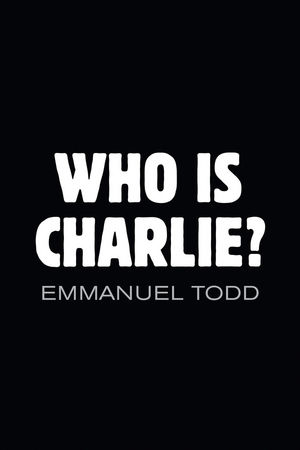by JEREMY HARDING
 Who is Charlie? Xenophobia and the New Middle Class by Emmanuel Todd, translated by Andrew Brown
Who is Charlie? Xenophobia and the New Middle Class by Emmanuel Todd, translated by Andrew Brown
Polity, 211 pp, £16.99, September 2015 IMAGE/Polity
In January 2012 François Hollande, socialist candidate for the presidency, announced on the campaign trail that his ‘true’ enemy was finance capitalism. In the space of twenty years it had taken control of ‘the economy, society, our very own lives’. A few weeks later in London, where the British public had bailed out the City with mixed feelings, Hollande backed off. It was not the enemy; it was merely in need of a conversation with the real world. François Mitterrand, too, was eloquent on the subject of money. At Epinay in 1971, when he won the leadership of the Socialist Party, he launched a heartfelt attack on ‘monopolies’ and entrenched wealth: ‘Money that corrupts, money that buys everything, money that rolls over people, money that kills, ruinous money, and money that rots the very conscience of human beings’. Behind this gust of anaphora lies the belief that equality is worn away by accumulation and raw acquisition: a view that Hollande may have shared for a moment, but one that’s harder to take now than it was when Mitterrand left the Elysée in 1995.
Growing inequality is one of the central preoccupations in Who is Charlie?, Emmanuel Todd’s short, polemical book about what is and isn’t ‘equal’ about France, which parts of the country are historically disposed to egalitarian values while others aren’t, and how the trinity of liberty, equality, fraternity came to crumble in the middle like a rotten plank. France, which lived through a series of bracing egalitarian interludes, on again, off again, from 1789 until the end of the Third Republic, is sensitive to the charge that equality is disappearing. In theory at least, Republicanism cannot exist without equality, since it ensures that no interest group, or class, or faction, can hijack the exercise of popular sovereignty, or merely subvert it, at the expense of other citizens. In Todd’s view, France must face up to the reality of a post-Republican era and admit that its leaders have sold its Revolutionary birthright for a mess of EU pottage: budgetary rules in Brussels and monetary policy in Frankfurt have made it impossible to promote equality or intervene when it is under threat.
His other preoccupation is the widening rift in Europe – France especially – between citizens of North African descent and the rest. Todd holds the rest largely responsible for this polarisation and the dangers that attend it. His book is a brilliant piece of wishful thinking, in which the rediscovery of equality and the reconciliation of believers with unbelievers will go hand in hand as France emerges from a long period of difficulty, some time in the future, with its core values restored. It will have shut out the siren voices emanating from Brussels, which sang the praises of competitive markets and globalised trade; crucially it will have abandoned the euro. France’s leaders should have been lashed to the mast by the electorate, but they weren’t, and the ship of state foundered. It may not be too late to repair it and set a course, but that will depend on many things, including whether the ‘nation’ – the French people, bound together by a common past and an ideological purpose (to keep the sense of belonging alive) – can come to their senses, in spite of their politicians. The nation’s sense of its past may also need updating to take account of recent immigrants and their descendants, as well as their religion.
London Review of Books for more
